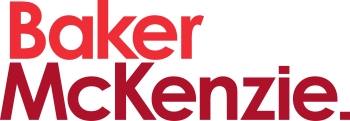In an important ruling of November 1 2011 (6672/11), the Supreme Arbitrazh Court clarified the tests for holding hosting providers liable for IP rights infringement.
Top 7, OOO, owner of copyright in a collection of photographs, sued Softkey, ZAO, Dignata Media, OOO and Agava-soft, OOO in the Moscow Arbitrazh Court for copyright infringement. Dignata Media had created an electronic edition of a guidebook that included the photograph collection. Softkey had offered the guidebook on its website, while Agava-soft owned the file-sharing server on which Softkey had placed the file containing the electronic publication. A buyer could download the publication upon paying and receiving a registration key (password).
The Moscow Arbitrazh Court ruled in favour of Top 7, but decreased the amount of compensation sought from Rb210,000 from each defendant to Rb10,000. On appeal, the Ninth Appellate Arbitrazh Court and the Federal Arbitrazh Court for the Moscow District increased the amount of compensation to that initially requested.
After accepting Agava-soft's request for a supervisory review, the Supreme Arbitrazh Court vacated the lower courts' decisions. In doing so it referred to its prior ruling of December 23 2008 (10962/08), which outlined the conditions for imposing liability on hosting providers. According to that ruling, the courts must take into account:
-
the degree of the provider's involvement in the communication, storage and processing of information; and
-
its ability to control and change the content.
A provider may not be held liable if it does not initiate the communication of information, affect the content of the information or choose the recipient, or if it takes steps to prevent the unauthorised use of IP rights.
Elaborating on these principles, the Supreme Arbitrazh Court established a number of tests to be followed by courts in similar cases. In particular, the court must check whether:
-
the provider has financially benefited from the activity of the parties using its services where such activity involved the exploitation of third parties' IP rights;
-
whether there are restrictions in place on the volume of the information placed and its accessibility to the public at large;
-
the user agreement requires the user to comply with Russian law when placing content and requires the provider to remove illegally placed content unconditionally; and
-
there are technical means (ie, software) that facilitate the infringement of exclusive rights, as well as efficient special purpose software allowing for the anticipation, identification and deletion of counterfeit works.
The Supreme Arbitrazh Court also instructed the lower courts to evaluate a provider's actions aimed at deleting or blocking the infringing content or the infringer's access to the website after either receiving the rights holder's notification of infringement or learning from, for example, the media about the use of its resources in a way that infringed third parties' IP rights. If, within a reasonable period, the provider fails to take action aimed at the cessation of infringement, or if it behaves passively or blatantly and publicly distances itself from the issue, the court can find the provider guilty of the infringement and hold it liable. With reference to the modern development of the Internet, the court opined that these tests are also applicable to owners of social networks and file-sharing resources.
Regarding the case at hand, the Supreme Arbitrazh Court found that the lower courts had failed to examine Agava-soft's activity as a file sharing/exchange service and as a domain name administrator that allowed users to place on its server user files which could be accessed by way of a password. The court also noted that the lower courts had failed to establish whether Agava-soft took any steps to delete or block the infringing content or the infringer's access to the site after it learnt of the infringement.
As a result, after affirming the lower courts' rulings regarding Softkey and Dignata Media, the court sent the case back to the first instance court for retrial in relation to Agava-soft's part.
The Supreme Arbitrazh Court indicated that previously decided cases with similar factual circumstances and based on the same legal provisions may be reconsidered, taking into account the directions contained in the ruling, provided that there are no additional obstacles to that reconsideration.
For further information on this topic please contact Eugene Arievich at Baker & McKenzie - CIS Limited by telephone (+7 495 787 2700), fax (+7 495 787 2701) or email ([email protected]).


